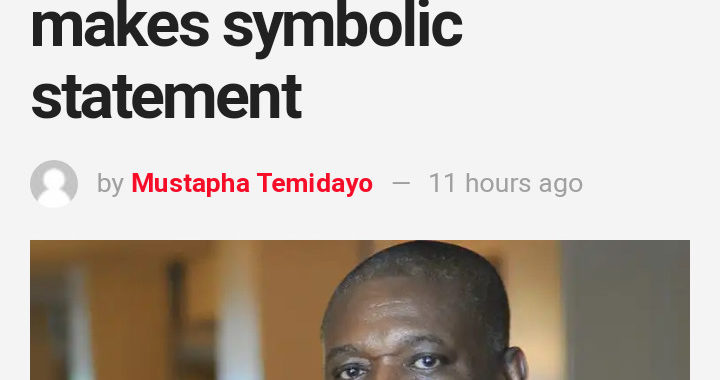The Ambivalence over the Conviction of Orji Uzor Kalu
Minutes after the conviction of Senator Orji Uzor Kalu by a Lagos based Federal High Court on December 5, 2019, Nigerians showed mixed reactions. Some people saw the conviction as justice done. Others saw it as a selective and politically motivated legal outcome. And both sides have good reasons for their different positions.
Without a doubt, every Nigerian political office holder, particularly the Governors and the Presidents, since 1999, has engaged in one form of corrupt enrichment or another. The Governors were handed huge unaccountable funds and allowed unconstitutional control over the budgetary allocations meant for local governments and the state judiciary. Lawmakers were allowed to allocate to themselves irrational amounts of allowances and control over what has been described as constituency projects. There was no restrictions on campaign financing. Thus the Nigerian politicians were handed a cart blanch to steal as much as they could, and everyone of them stole a lot.
Along with the new era of unbridled corruption came a unique system of selective and politically motivated enforcement of the criminal laws of the country. The major agencies to fight corruption and economic crimes in Nigeria turned out to be mere instruments of control of any political opposition.
The Economic and Financial Crimes Commission (EFCC), the leading agency to fight economic crimes (not necessarily corruption, as that was meant to be the responsibility of the Independent Corrupt Practices Commission (ICPC)) targeted exclusively opponents of the President. When the EFCC realized that the constitutional immunity from prosecution while in office granted the Governors some temporal protection, it aimed at initiating impeachments of those Governors, even if it meant violating the constitution.
With such a terrible record of impunity, Nigeria’s war against corruption lost much credibility and remained perceived as a system of selective justice and instrument of political control. With this in mind, many view the occasional conviction of a politician with a justified degree of scepticism.
Applying such scepticisms to Kalu’s conviction, the question is: What really is the political motivation for the development? People may point to the fact that the trial lasted for twelve years in order to exclude any sudden game. However, sound logic suggests the opposite. When a criminal trial lasts for a long time, the prosecution serves as a ready instrument of all manner of political control. This is particularly so in the face of judicial corruption and the absence of independence of the judiciary. Thus, a phone call from the Presidency to the judge can achieve any outcome the caller intended.
Why would Kalu be a good target for such political game at this time? The only but quite crucial motive has to do with Orji Kalu and Igbo presidency in 2023. If the ruling APC were to commit to Igbo presidency in 2023, Orji Uzor Kalu would be one of the most viable presidential candidates. Kalu knew this and had carefully positioned himself in the ruling party. If there were a powerful enough splinter force determined to frustrate the idea of Igbo presidency or any ambition on the part of Kalu come 2023, the 12 year old pending trial is the best means of accomplishing that. Call the judge from the presidency.
DPA does not by any means impugn the judgment of Honorable Justice Idris. However, the following statement in the judgment remains susceptible to various interpretations. The judge stated as part of his judgment:
“No gaps were left unfilled. This is the acceptable standard. I hold the view that the prosecution has established its case against the defendants; it did not fall short of the standard required by law in money laundering offences. It is clear upon the facts before this court that the prosecution had this case conclusively investigated before opting to bring this charge against the defendants. In other words, the prosecution did an in-depth and conclusive investigation”.
The charge was actually brought 12 years before the conviction. This statement can reasonably be construed as a political statement that was calculated to preempt any complaint of ulterior motivation or corruption against the judge or the EFCC. Indeed, such statement is unnecessary and need not be included in a judgment that has gone in favor of the prosecution. Ordinarily, a conviction would have been sufficient to show that the court accepted that the prosecution met the requisite standard of proof. The needless effort to uphold his own judgment is suggestive of discomfort on the mind of the judge.

